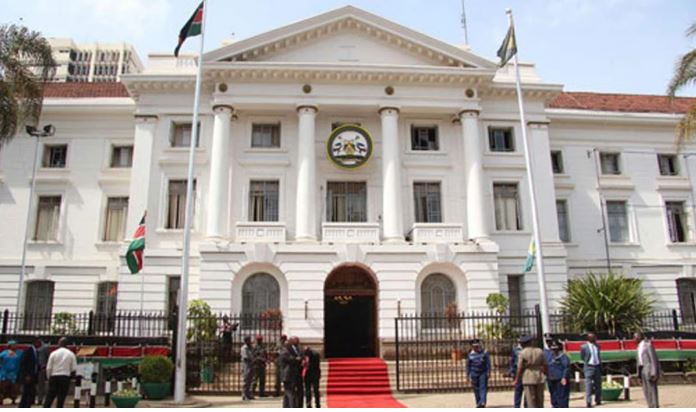
Oversight of daycare centres in Nairobi is set to experience major changes after City Hall unveiled plans to map all centres in the capital for effective monitoring.
The county government announced on Saturday that it has partnered with Kidogo Early Years (KEYs), a social enterprise in the childcare sector, to facilitate this.
They will co-create a new childcare policy and regulatory framework as a blueprint for transforming childcare services.
Community Health Services head Judy Macharia said the move will boost the welfare of children.
“This initiative marks a crucial step towards institutionalising quality, sustainable Early Childhood Development in Nairobi’s broader agenda,” she said.
“Governor [Johnson] Sakaja continues to deeply invest in children. Beyond programmes like Dishi na County, where children are fed daily, we have secured funding to train healthcare workers and our 7,820 Community Health Promoters on nurturing care and the Care for Child Development approach,” she said.
“Our children are our future, and we are committed to developing policies and frameworks that support their welfare across the county.”
A major highlight of the forum was the soft launch of the Childcare Mapping Pilot, led jointly by Kidogo Early Years and the County’s Education and Health departments.
The pilot confirmed the existence of more than 4,000 daycare centres across Nairobi, showing the extent of existing, though often informal, services.
KEYs policy head Elaine Wacuka said the data gathered through the mapping will be transformative.
“For too long, informal childcare providers have been the silent backbone of working families, yet they’ve remained largely unseen in data and planning,” she said.
“Together with our partner Nairobi county, we have developed the Childcare Mapping Tool, a data-driven initiative to help us make the invisible visible.
"For the first time, the county can visualise where childcare is happening, identify underserved neighbourhoods and, most importantly, understand what support providers need to improve the quality of service offering.”
The initiative builds on the work of Community Health Promoters, whose feedback helped refine the tool to ensure it serves both policymakers and childcare providers on the ground.
According to the organisers, the forum underscored that childcare is a shared responsibility requiring joint action from all sectors.
The policy framework seeks to establish a cohesive system in which on one hand, the government provides leadership, sets standards and expands financial support.
On the other hand, philanthropy and the private sector are expected invest in innovation, quality improvement and infrastructure.
And finally, the framework ensures that communities and parents have access to information and a voice in shaping services.
To complement the mapping, the county’s Education department, represented by Education director Ruth Owuor, has worked on a draft of the Nairobi City County Child Care Facilities Regulations (2025).
The regulations aim to improve childcare services and operationalise the Nairobi City County Child Care Facilities Act (2017).
KEYs policy consultant Martina Adega said the programme will be implemented over the next three years.
It will focus on training childcare providers on the nurturing care framework, covering health, good nutrition, safety and security, opportunities for early learning and responsive caregiving.
“During the pilot, Community Health Promoters successfully mapped 174 childcare centres,” Adega said.
The centres were in Utawala, Upper and Lower Savannah, Mihango, Embakasi, Utalii, Mathare North, Lucky Summer, Korogocho and Baba Dogo.
“This provides Nairobi with its first detailed, hyper-local snapshot of existing childcare provision, opportunity and current practice, offering actionable data for evidence-based planning and interventions,” she said.
The partnership between Nairobi county and Kidogo, she added, demonstrates a strategic, government-led approach to embedding sustainable childcare solutions that will benefit generations of children and caregivers in Nairobi.
INSTANT ANALYSIS
The mapping of more than 4,000 daycare centres gives Nairobi its first clear picture of childcare realities in informal settlements. The data-driven policy could redefine how the city supports working parents and early childhood services.












